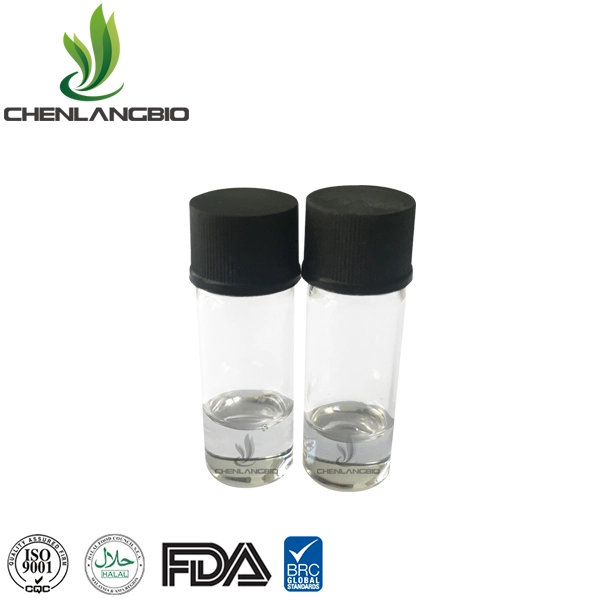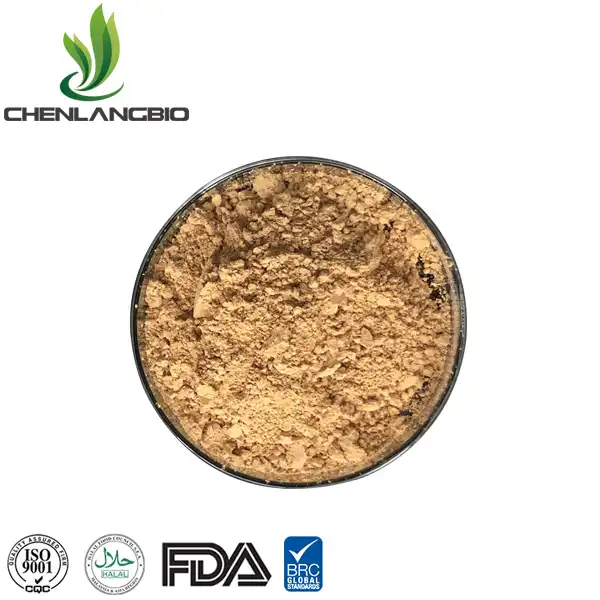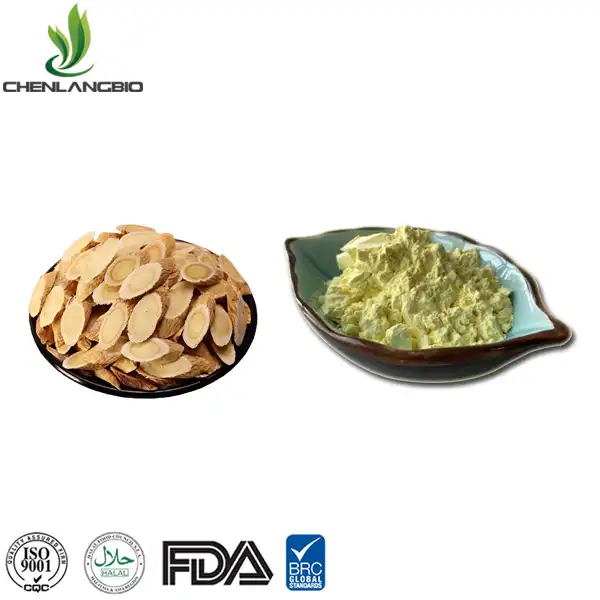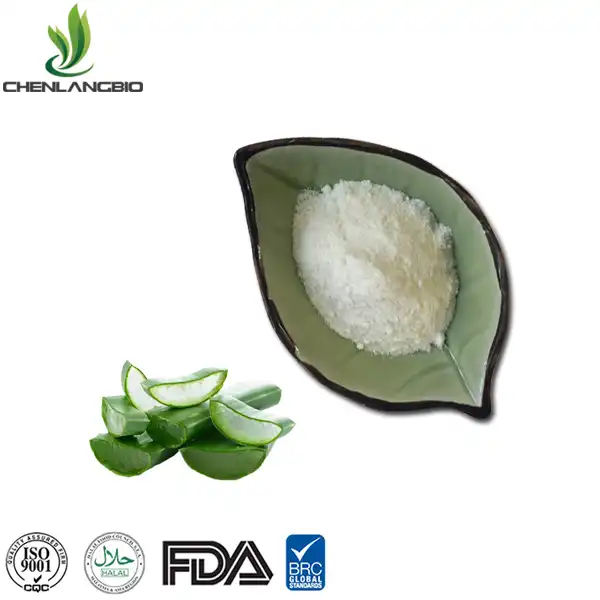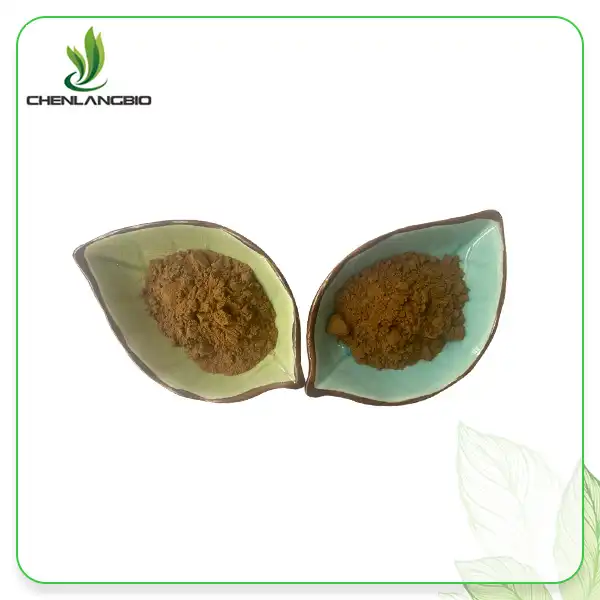Is Ascorbyl Tetraisopalmitate Better Than Ascorbic Acid
2024-07-23 14:57:50
While looking at L-ascorbic acid subsidiaries for skincare, for example, ascorbyl tetraisopalmitate and ascorbic corrosive, each offers unmistakable benefits. Ascorbyl tetraisopalmitate stands apart for its lipid dissolvability, which improves skin infiltration and strength contrasted with water-solvent ascorbic corrosive. This makes it doubtful to oxidize and more reasonable for delicate skin types. Additionally, ascorbyl tetraisopalmitate has potent antioxidant properties that aid in the production of collagen, brighten the skin, and diminish hyperpigmentation. Nonetheless, ascorbic corrosive remaining parts a highest quality level because of its broad exploration moving its viability in collagen creation and cell reinforcement security. Ascorbyl tetraisopalmitate is a stable, gentle alternative for those looking for effective Vitamin C benefits in their skincare routines. The choice between these two is dependent on individual skin needs and tolerance.
What Are the Main Differences Between Ascorbyl Tetraisopalmitate and Ascorbic Acid?
Understanding the fundamental differences between these two forms of Vitamin C can help determine which one might be more suitable for your skincare needs.
A pure form of L-ascorbic acid known as ascorbic corrosive is notable for its stable structure and potent anticancer properties. Notwithstanding, when acquainted with power, light, or air, it can point of fact ruin since it is fundamentally temperamental and dissolvable in water. Its fragile nature may render it ultimately useless.
Then again, ascorbyl tetraisopalmitate is an oil-solvent L-ascorbic acid subordinate that is more steady than ascorbic corrosive, opposing oxidation and staying strong for a more extended timeframe. It is additionally more oil-solvent. Due to its stability, it is utilized in numerous skincare formulations.
Skin Infiltration Due to its oil-solvent nature, ascorbyl tetraisopalmitate can actually penetrate the skin's lipid layers more effectively than water-soluble ascorbic corrosives. Its ability to provide benefits like collagen production and antioxidant protection is enhanced by its deeper penetration.
Potential for disorientation Because of its low pH, corrosive ascorbic acid can occasionally sting, sting, and blush, particularly in individuals with sensitive skin. On the other hand, ascorbyl tetraisopalmitate is safe for a wider range of skin types because it usually lasts longer and is less likely to irritate the skin.
How Do the Benefits of Ascorbyl Tetraisopalmitate Compare to Ascorbic Acid?
Both ascorbyl tetraisopalmitate and ascorbic acid offer significant benefits for the skin, but they may differ in their efficacy and application.
Properties as a cell reinforcement Ascorbic corrosive is an intense cancer prevention agent that safeguards the skin from free extreme harm welcomed on by contamination and UV beams. It helps to prevent premature aging and promotes a healthier complexion. Additionally, ascorbyl tetraisopalmitate offers enhanced stability and potent antioxidant protection, ensuring that skincare products last longer.
Collagen Blend Invigorating collagen union, which is important for protecting skin's immovability and flexibility, is one of L-ascorbic acid's essential benefits. Ascorbic acid and ascorbyl tetraisopalmitate both aid in the production of collagen. However, due to its improved penetration, ascorbyl tetraisopalmitate may be more effective at promoting collagen formation deep within the skin.
Illuminating and Attempt and Appearance
Ascorbic destructive is remarkable for its ability to illuminate the skin and reduce hyperpigmentation by curbing melanin creation. Ascorbyl tetraisopalmitate also excels in this regard, offering significant brightening benefits. It is a reliable option for treating uneven skin tone and dark spots because it is stable and can provide consistent results over time.
Anti-Inflammatory Properties Ascorbic acid alleviates redness and soothes irritated skin thanks to its anti-inflammatory properties. Notwithstanding its calming properties, ascorbyl tetraisopalmitate is additionally less aggravating generally. Because of this, it is a reasonable option for people whose skin is sensitive or responsive.
Which Form of Vitamin C is More Suitable for Different Skin Types?
The suitability of ascorbic acid and ascorbyl tetraisopalmitate can vary depending on skin type and individual skincare needs.
Sensitive Skin
Ascorbic acid's low pH can be irritating for sensitive skin, potentially causing stinging and redness. Ascorbyl tetraisopalmitate, being less acidic and more stable, is often better tolerated by sensitive skin, providing similar benefits without the associated irritation.
Oily and Acne-Prone Skin
Both forms of Vitamin C can be beneficial for oily and acne-prone skin due to their antioxidant and anti-inflammatory properties. However, ascorbyl tetraisopalmitate's oil-soluble nature allows it to penetrate clogged pores more effectively, potentially offering better results in reducing acne-related inflammation and promoting clearer skin.
Dry and Mature Skin
For dry and mature skin, the hydrating and collagen-boosting properties of Vitamin C are particularly important. Ascorbyl tetraisopalmitate's ability to penetrate deeply and stimulate collagen production can be especially beneficial, helping to improve skin texture, reduce the appearance of fine lines, and enhance overall radiance.
What Are the Best Ways to Incorporate Ascorbyl Tetraisopalmitate into a Skincare Routine?
Incorporating ascorbyl tetraisopalmitate into your skincare routine can maximize its benefits and complement other skincare ingredients.
Product Types
Ascorbyl tetraisopalmitate is available in various formulations, including serums, oils, and creams. Serums typically offer higher concentrations and are designed for targeted treatment. Oils and creams provide additional hydration and are ideal for daily use, especially for dry or mature skin.
Layering with Other Ingredients
To enhance the effectiveness of ascorbyl tetraisopalmitate, it can be combined with other beneficial ingredients:
Vitamin E: This antioxidant duo provides enhanced protection against free radicals and improves the stability of ascorbyl tetraisopalmitate.
Hyaluronic Acid: Boosts hydration and helps retain moisture in the skin, complementing the anti-aging benefits of ascorbyl tetraisopalmitate.
Niacinamide: Reduces inflammation and hyperpigmentation, enhancing the brightening effects of ascorbyl tetraisopalmitate.
Retinol: When used correctly, this powerful combination can significantly improve skin texture and reduce signs of aging.
Usage Tips
Apply Lightest Products First: Start with lighter products such as serums, followed by heavier creams or oils. This ensures optimal absorption and efficacy.
Use Sunscreen: Always use a broad-spectrum sunscreen during the day when using products with ascorbyl tetraisopalmitate, as it can increase your skin's sensitivity to the sun.
Patch Testing: Perform a patch test when introducing new products to avoid potential irritation or allergic reactions.
Can Ascorbyl Tetraisopalmitate Replace Ascorbic Acid in Skincare?
Deciding whether to replace ascorbic acid with ascorbyl tetraisopalmitate depends on individual skin concerns and preferences.
Efficacy
While both forms of Vitamin C offer significant benefits, ascorbyl tetraisopalmitate's stability and deeper penetration may provide more consistent and long-lasting results. Its ability to maintain potency over time makes it a reliable choice for those looking for sustained antioxidant protection and anti-aging benefits.
Personal Preference
Some individuals may prefer the traditional and well-researched benefits of ascorbic acid, while others may appreciate the enhanced stability and gentler nature of ascorbyl tetraisopalmitate. Ultimately, the choice between the two depends on personal skincare goals and skin type.
Complementary Use
It's also possible to use both forms of Vitamin C in a skincare routine, taking advantage of their unique properties. For example, ascorbic acid can be used in the morning for its immediate antioxidant protection, while ascorbyl tetraisopalmitate can be applied at night for deeper penetration and collagen-boosting benefits.
In conclusion, ascorbyl tetraisopalmitate and ascorbic acid each offer distinct advantages in skincare. Ascorbyl tetraisopalmitate's stability, deeper penetration, and lower irritation potential make it a compelling alternative to ascorbic acid. However, the choice between the two ultimately depends on individual skincare needs and preferences. By understanding the differences and benefits of each form, you can make an informed decision on which Vitamin C derivative is best for your skin.
References
Paula's Choice. (2024). Understanding Ascorbyl Tetraisopalmitate: Benefits and How to Use It
Healthline. (2024). What Is Ascorbyl Tetraisopalmitate and How Does It Benefit Skin?
Byrdie. (2024). Ascorbyl Tetraisopalmitate: The Vitamin C Derivative You Need to Know
Dermstore. (2024). Ascorbyl Tetraisopalmitate: Uses, Benefits, and Side Effects
SkinCeuticals. (2024). All About Ascorbyl Tetraisopalmitate
Real Simple. (2024). How Ascorbyl Tetraisopalmitate Works and Why It’s Beneficial for Your Skin
InStyle. (2024). [The Benefits of Ascorbyl Tetraisopalmitate in Skincare](https://www.in
Send Inquiry
Related Industry Knowledge
- Benefits of Saccharomyces Ferment Lysate Filtrate
- Does L-Carnosine Help Skin? Benefits and Uses Explained
- How Long Does Praziquantel Stay Active in Water
- Does All Green Tea Have EGCG?
- What are the Health Benefits of Bitter Melon Extract Powder
- What Does Yohimbe Extract Powder Do
- What does Garlic Extract Powder Allicin Do to Bacteria
- Can Pure Fisetin Reverse Aging
- Regulate Immunity Pure Natural Quercetin
- Podophyllin for Warts




